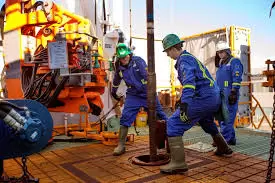Best paying jobs in fluid controls. In the same way that plumbing and electrical work are essential to building a house, fluid controls are crucial for keeping it standing. That’s why there’s no shortage of jobs in this field: from aeronautical and aerospace engineers to computer hardware engineers, there are plenty of occupations to consider if you’re interested in learning about how fluids move through machines.
Best paying jobs in fluid controls

The following below are the Best paying jobs in fluid controls:-
Aeronautical and Astronautical Engineer
Aeronautical and Astronautical Engineers are responsible for the development and testing of aircraft and spacecraft. They use their knowledge of aerodynamics, propulsion, and materials to create new aircraft, as well as improve existing aircraft.
Aeronautical engineers work in a wide range of areas including structural design, flight control systems, or propeller design. Astronautical engineers focus on space travel or rockets that can be used on Earth or in space.
Aerospace Engineer
Aerospace engineers are highly educated professionals who design, develop and test aircraft, spacecraft and missiles. Aerospace engineers work with a range of different materials such as metals and plastics, often in extreme environments. They also may specialize in one of several fields including:
- Aeronautical Engineers – These aerospace engineers design aircraft that can fly in the air. They might also specialize in a particular kind of flight, such as commercial or military.
- Astronauts – These aerospace engineers are responsible for overseeing all aspects of space missions from liftoff to landing. Due to the high cost associated with these kinds of projects, astronauts generally work at NASA or other government agencies rather than private firms like SpaceX or Blue Origin .
Agricultural Engineer
Agricultural engineers design and develop ways to improve processes in the production, storage, and distribution of food, fiber, feed, and other agricultural products. They may also be involved in developing new machinery or equipment for use on farms.
- Must be familiar with engineering principles.
- Must have knowledge of the latest developments in fluid controls technology.
- Should know how to operate computer-aided design (CAD) software packages to create drawings.
Biomedical Engineer
Biomedical engineers are the people who design medical devices and equipment. They can work in a variety of industries, including hospitals, clinics and research labs; industry and manufacturing; or even academia.
If you want a job that will pay well, this one is for you. According to the Bureau of Labor Statistics (BLS), biomedical engineers earned an average of $105,250 per year as of May 2017. That’s significantly higher than the median annual salary for all occupations: $37,690.
Chemical Engineer
Chemical engineers design and develop processes that produce chemicals, fuel, food, pharmaceuticals and many other products. They combine the knowledge of chemistry, biology, physics and mathematics to find new solutions to problems.
The skilled professionals have a bachelor’s degree in chemical engineering from an accredited program.
Computer Hardware Engineer
Computer hardware engineers design, develop, and test computer hardware components, systems, and networks. They are responsible for the creation of new computer hardware as well as the testing, maintenance, and repair of existing hardware. Computer hardware engineers generally work in an office environment and often use computers to test or modify their designs before they’re produced on a large scale.
Drafting and Design Engineering Technician
Drafting and design engineering technicians are responsible for creating drawings and other schematics as well as building layouts, prototypes and models of products. They work closely with engineers in order to create blueprints that can be used by manufacturers. According to the U.S. Bureau of Labor Statistics (BLS), these workers spend much of their time working with computers designing and drafting new designs or modifying existing ones.
According to the BLS, employment growth is expected to increase by 11 percent between 2016-2026 which is much faster than average nationally at 5 percent annually over this period due largely because most needs in this field require specialized skillsets that aren’t easily mastered by entry-level candidates who aren’t yet trained thoroughly enough for any job beyond basic administrative roles within an organization’s supply chain management department; however even if you don’t have five years’ experience under your belt just yet there are still plenty ways for new graduates like yourself get started down this path early: For example if you’ve been keeping up-to date on your math classes all along then there’s no reason why
Environmental Engineering Technician
Did you know that environmental engineering technicians are responsible for the analysis and management of environmental issues? They’re responsible for the design, construction, and monitoring of environmental systems. They also monitor the quality of the environment and the impact of human activities on it.
As an experienced technician, you may be able to find work as a project manager or business analyst in this field. You’ll work closely with other engineers to help them solve problems related to water pollution or waste management.
Industrial Engineering Technician
An industrial engineering technician is responsible for maintaining the efficiency and productivity of a manufacturing facility. They must be able to troubleshoot problems, design new processes and conduct trials to determine whether they can be implemented in the future. In order to do this successfully, industrial engineering technicians must work closely with their team members, as well as other departments within the company. This requires good communication skills and an ability to collaborate effectively.
Mechanical Engineering Technician
The mechanical engineering technician is a person who has received a degree in mechanical engineering and has taken on the role of an engineering technician. As such, this job requires you to have knowledge of all aspects of mechanical engineering and mechanics. The main duties performed by a mechanic are:
- Performing maintenance on machinery or equipment
- Repairing machines that are broken down
- Maintaining in-house equipment
Metallurgical Engineering Technician
Metallurgical engineering technicians inspect, test, measure, and analyze metals and alloys to determine their properties and their suitability for use in various products. They also test materials used in manufacturing processes to ensure that they meet specifications. $72,920 median annual wage (May 2016).
Conclusion
The fluid controls industry is huge and growing. The demand for skilled workers continues to increase, making it the ideal time to get into this lucrative field. With so many different sub-specialties, there’s plenty of opportunity for you to find a career path that fits your interests and skillset. If you’re ready to launch your career in fluid controls today then check out these top paying jobs. Best paying jobs in fluid controls
